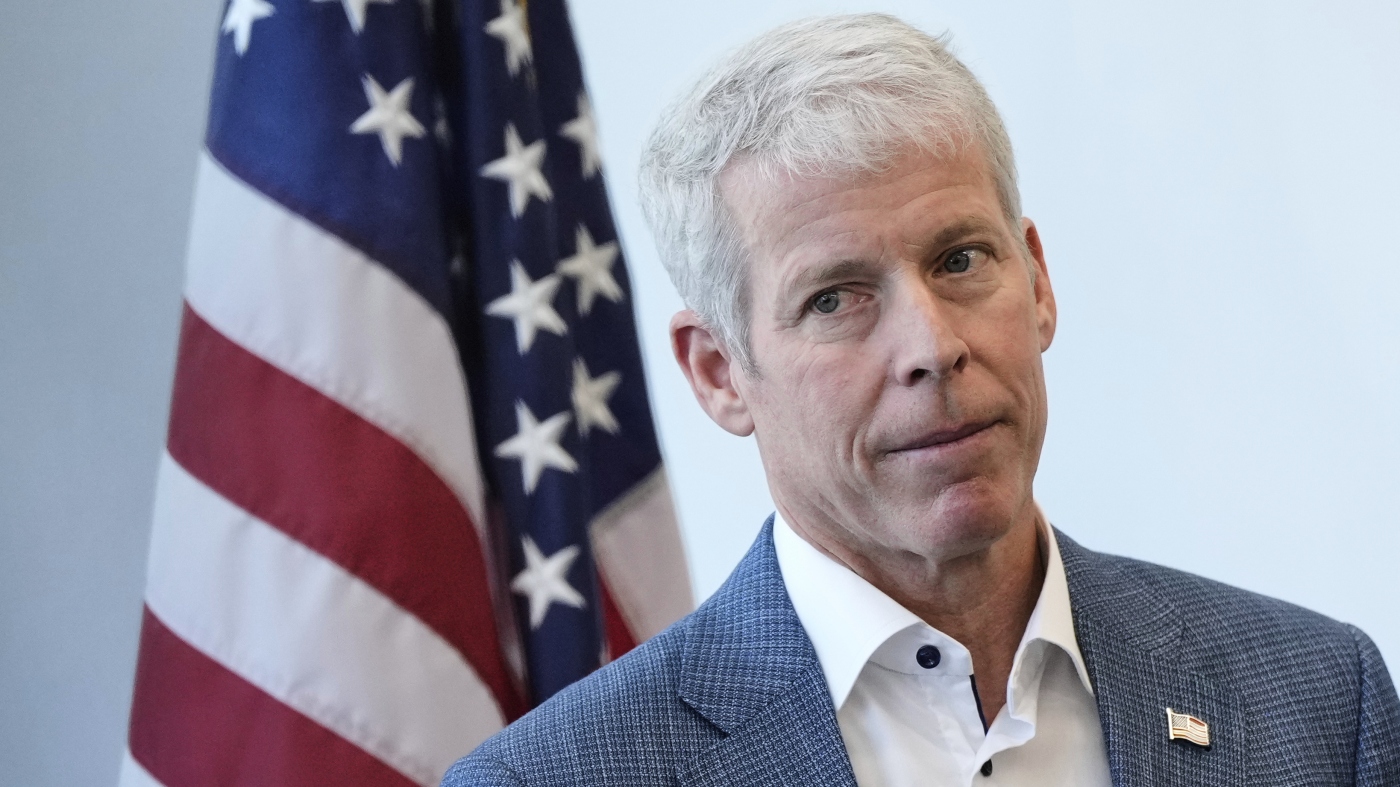
A provocative statue depicting former President Donald Trump and convicted sex offender Jeffrey Epstein holding hands has made a surprising return to the National Mall in Washington, D.C. The bronze-painted sculpture, initially called *Best Friends Forever* and later renamed *Why Can’t We Be Friends?*, was reinstalled on Thursday, just over a week after it was abruptly removed in the early hours of September 24.
The statue, which sparked significant controversy upon its first appearance in front of the U.S. Capitol on September 23, features a plaque that celebrates the “long-lasting bond” between Trump and Epstein, often referred to as his “closest friend.” This striking installation reignited discussions about Trump’s complicated history with Epstein, who died in a federal jail in August 2019 while awaiting trial on serious charges.
Trump has consistently attempted to minimize his association with Epstein, suggesting that they had a falling out before Epstein’s legal troubles became public. He has claimed that their friendship soured when Epstein began poaching employees from Trump’s Mar-a-Lago resort, including young women.
In the wake of the statue’s first unveiling, White House spokesperson Abigail Jackson stated that it was already known that Epstein had connections with Trump, underscoring that Trump supposedly expelled Epstein from his club for inappropriate behavior. Despite this, the statue’s presence in a prominent location such as the National Mall has drawn both supporters and detractors.
The art group behind the installation, known as The Secret Handshake, is responsible for previous satirical pieces targeted at the Trump administration. They obtained the necessary permits from the National Park Service (NPS) to display the statue until September 28. However, just one day after its debut, U.S. Park Police removed the statue, citing non-compliance with permit regulations, although they did not specify the nature of the violations.
A member of The Secret Handshake, who requested anonymity due to fears of retaliation, described the removal as unexpected, claiming they did not receive the requisite 24-hour written notice typically required for such actions. Following the statue’s removal, the group managed to recover the broken pieces of the sculpture and worked to restore it for a second installation.
After a week of attempts and some initial failures, the statue was successfully re-erected on the Mall. A member of The Secret Handshake commented on the statue’s return, likening it to a toppled Confederate monument that has been restored to its place of prominence, stating, “Just like a toppled Confederate general forced back onto a public square, the Donald Trump Jeffrey Epstein statue has risen from the rubble to stand gloriously on the National Mall once again.”
The statue is now permitted to remain on display until 8 p.m. local time on October 6. This marks the third permit the group has received for the statue, after facing challenges in their earlier attempts to reinstall it. Late last week, they informed NPR that they had received a second permit, only for it to be revoked by phone without explanation as they were en route to the Mall.
As the controversy surrounding the statue unfolds, the federal government has been facing a shutdown, which has resulted in thousands of employees being furloughed. The NPS has not responded to inquiries regarding the statue’s removal or the subsequent reinstallation.
In addition to the statue’s return, the Trump administration is under increasing pressure to release the so-called “Epstein files,” a collection of documents from investigations into Epstein’s activities. Trump had previously pledged to release these files if re-elected, but his failure to do so has led to mounting criticism and scrutiny from Congress. The House Oversight Committee has already subpoenaed and published thousands of pages of related documents as part of its investigation.
A recent NPR/PBS News/Marist poll revealed that 61% of Americans disapprove of Trump’s handling of the Epstein files, with a striking 77% in favor of their release, provided that the names of victims are redacted. The ongoing discourse surrounding the statue, coupled with the broader implications of the Epstein case, continues to captivate public attention and elicit strong reactions across the political spectrum.


